As I was writing this blog entry, we had a power failure, and unfortunately I had not saved what I wrote. Thus, I will start again, at some other point (and save regularly ;)).
In fact, when I leave my guest house in the morning and stroll along the streets of Masaka (well, maybe I’d better say “try to avoid being run over by a motorbike, falling into one of the holes in the pathway or stumbling over one of dozens pairs of shoes being offered by a street vendor), the air of the town is filled with the buzzing sound of shop keepers starting their generators – who ever can afford one, has one, all others resort to candles after sunset (which happens all year round at 7 pm sharp due to the closeness to the equator). Actually it seems like power from the net is hardly ever available. Also internet cafés are run by generators and it feels kind of surreal to watch the fuel being regularly refilled into the motor which is feeding my access to the world wide web. Well, in a way it’s similar to being aware of where our food in the supermarket comes from – we (in the “minority world”) take everything which needs power so much for granted that we don’t even think about how much oil per minute we are using.
My research here has been going well so far and has also been extremely interesting. I am lucky to have an excellent guide and translator by my side – he has studied Organic Agriculture and was born in the region where I am investigating indigenous knowledge about pest management – unfortunately, my results so far have been quite discouraging. As opposed to what I read in some reports, farmers here do seem to have just enough money to buy artificial fertilisers and pesticides / herbicides, and at the same time they are lacking any professional guidance on how to use them in a considerate way. The government does not seem interested in supporting sustainable agriculture (it is even planning to introduce GMO crops to Uganda (!)) and the only hope comes from NGOs, which are doing great jobs here, though limited by funding and staff.
Coming to Uganda for the second time is just as eye-opening for me as it was coming here for the first time. It helps me to go much deeper into many things, to look at details as I am already familiar with the “big picture” and additionally, I have been to more other places in the meantime so that I can put things into perspective much better than back then. It is astonishing how many differences I can find between here and India, for example. Uganda feels in many ways even less developed than India, and at the same time, I am noticing much progress since the last time I was here. Or maybe I have also become more adaptive due to my travels in other “majority world” countries in the meantime… Travelling – and maybe even more so living – in such countries is always a good lesson in humbleness. I do highly appreciate that I have a comfortable room in a guesthouse which I discovered after spending my first nights in different other hotels, I am grateful for my mosquito net, my towel, a certain amount of space, power, light, internet (even though not always easily available), the availability of a toilet and a shower (sometimes even with hot water) and of having enough money to buy food when I feel hungry. Also, realising the opportunity of education can contribute to feeling ashamed about endless complaints about the education system in our countries. We can always choose between appreciating what we have and complaining about what we are missing – and that seems to be a universal truth, just as the fact that we can always improve our own lives and those of others with some effort.

Typical Ugandan food – “matoke” (mashed plantains), “posho” (maize flour mixed with water but quite a hard consistency), sweet potato and as sauces either beans or groundnuts – oh and fresh fruit juice which can make up for anything :)
- Since I visited the amazing Lotus temple in Delhi I was curious to see the Bahá’í temple of Uganda, which looks very different
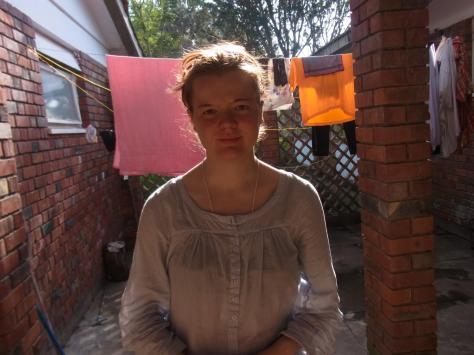
Just me ;)

Typical Ugandan farm -agroforestry and intercropping are common practise here (in this pic: yam, coffee and banana)

Coffee tree which has died from coffee wilt – one of the major problems here in terms of crop diseases

One thing I noticed this time is that in any hotel, I am first offered a room with two beds, and when I deny, I get a room with a bed with space for at least three people… :-?
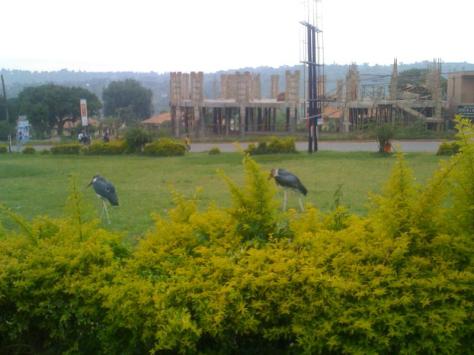
Somehow in Africa everything is just a size larger – such as these carrion-eating marabou storks which are as common in urban environments as blackbirds in Europe




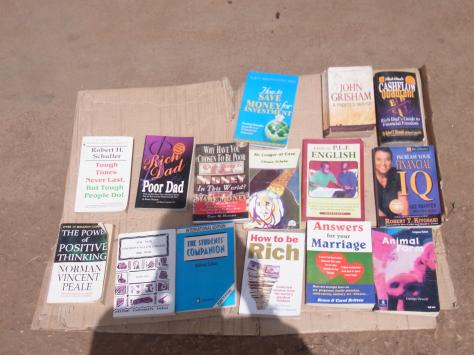

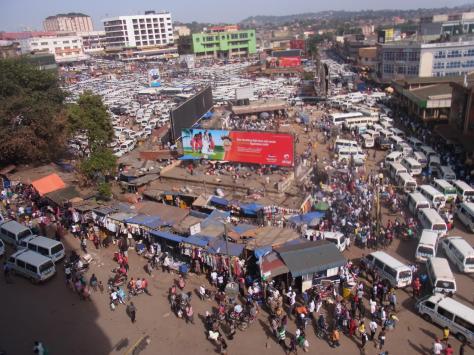













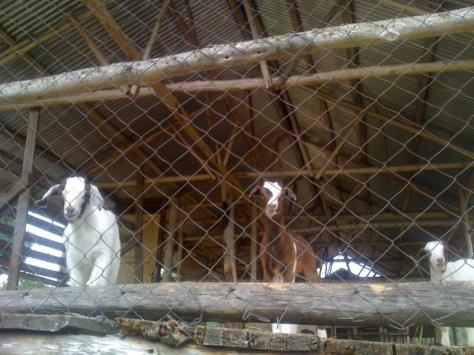









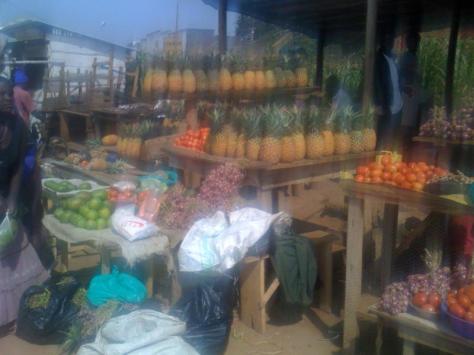
thanks for the link Johanna, so nice to read about your experiences and see the pics! i even miss hanging my laundry there in the little patio.. Glad to hear that it is going well, even if things are not always as you expect… good luck with the rest of it!
Johanna ist wieder in der großen weiten Welt unterwegs! Und das Essen sieht mal wieder superlecker aus :) Genieß deine Reise, ich freu mich schon auf den nächsten Blog-Eintrag!
It’s always exiting to read about your adventures wherever you are in the world. If you should visit Germany one time again, it would be a pleasure to see you. Often think of you, but with our sweet baby Julia, there is nearly no time to write.